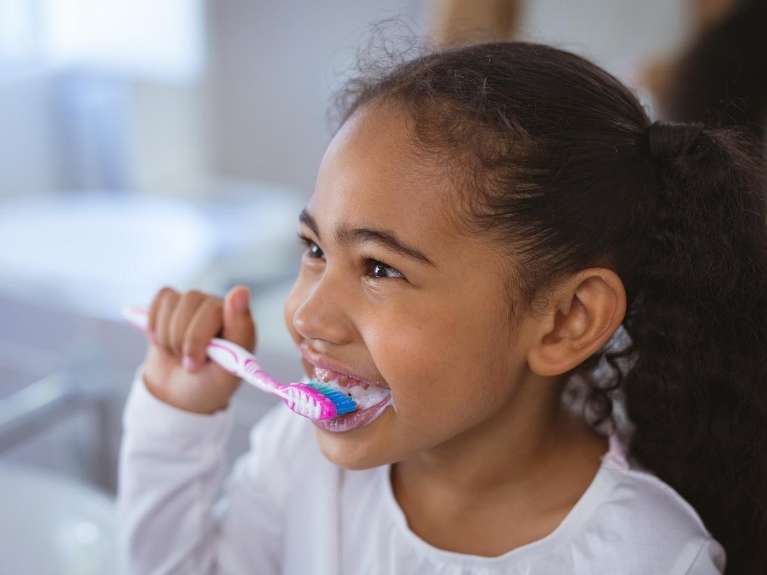
Oral health is declining in children – according to the Australian Institute of Health and Welfare, over 50 per cent of six-year-olds are presenting to their dentists with decay in both baby and adult teeth.
That’s why it’s vital you teach your children the principles of good oral hygiene and ensure they develop an understanding of how to look after their teeth and visit their dentist on a regular basis. Getting them to the dentist may be a scary task - visions of drills, scrubbing and whirring suction tubes make even a seasoned adult a bit sweaty palmed. Be open an honest with your kids about the kinds of things to expect, so even if their treatment does end up being a little uncomfortable they are aware ahead of time that this is the case with some treatments. It wont make them like the dentist any more, but at least they will be prepared.
But how often should you take your child to the dentist? Experts say that from one year of age (or six months after their first tooth appears) children should start attending regular six-monthly dentist appointments.
Starting early can set up a positive attitude to visiting the dentist. Children can naturally feel a little intimidated at first by the dental surgery – especially if they’ve been forewarned by siblings or playmates about the terrors of drilling and removing teeth. Your children’s dentist is expertly trained in putting little ones at ease, creating positive experiences they can draw on all their life.
Before this time, it’s important to instil a dental hygiene routine at home so that, by the time a child reaches three years of age, they understand how to keep their teeth healthy. If baby teeth are removed due to cavities, it can cause problems with crowding when their adult teeth come through.
Also, baby teeth play an essential role in adult oral health. As they fall out, they guide the incoming permanent teeth into position, so looking after them is a must to forestall later problems.
Making the process fun can go a long way to create positive habits from an early age. Try using an egg timer set for two minutes to make a game out of it – how clean can their get their teeth before the clock runs out?
Even though baby teeth will eventually fall out, maintaining a regular brushing routine twice a day with a soft toothbrush is crucial to prevent decay. Flossing is also recommended – you can start when your child has their first two adjacent teeth – but remember that young children will need your help until they're around ten years old.
A well-rounded diet is also useful for promoting healthy, strong teeth. Incorporate calcium-rich foods like cheese and milk, fresh vegetables, lean meats and fluoridated tap water into everyday meals. If your water doesn't contain fluoride, you can also use child-friendly supplements, but beware of high-sugar foods like biscuits, lollies, ice cream and muesli bars.
What your children’s dentist will look for at their first appointment.
Your dentist will inspect your child's mouth to rule out any early signs of dental disease or decay so that these can be treated before they exacerbate into a more significant and more invasive issue. Often symptoms are invisible to the untrained eye, so you might be unaware there is a problem until it's too late.
Children’s dentists are also trained to spot fluoride deficiencies and can recommend adjustments to your child’s diet or apply a supplement fluoride solution in the dental rooms. They can further reinforce dental hygiene habits by suggesting better ways your child can look after their teeth simply at home.



